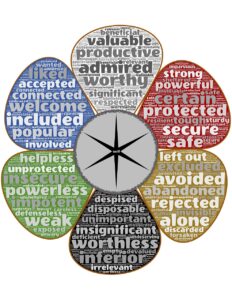TL;DR:
– Independence in relationships emphasizes individuality and growth
– Boundaries and open communication are crucial for fostering autonomy
– Conflict can be a tool for personal development in relationships
– Balancing independence with interdependence enhances relationship satisfaction
– Focus on balance, communication, and growth to maintain healthy autonomy in relationships.
Introduction
The keyword ‘Independence in Relationships’ is a cornerstone to a thriving partnership. Striking the right balance between freedom and connection can seem elusive, but it’s well worth the effort. This article, ‘Independence in Relationships: 5 Powerful Ways to Foster Autonomy’, will shed light on this intricate dynamic. Using insights from my years of experience as a wellbeing and self-improvement advisor, I’ll guide you through the complexities of fostering autonomy while maintaining a warm, nurturing bond. Let’s discover together how independence in relationships can contribute to your personal growth and overall relationship satisfaction.
Exploring Independence in Relationships
In the realm of healthy relationships, the concept of independence is crucial. But, what does it mean to be truly independent within a relationship context?
Significance of Independence in Relationships
Independence in relationships refers to the ability to maintain self-identity and personal interests while cultivating emotional intimacy with your partner. This means you have your own personal space and time for self-improvement. You are not dependent on your partner for happiness or validation.
To quote the words of psychiatrist Abigail Brenner, “Independence is a powerful indicator of self-love, some measure of which is necessary for any healthy relationship.“
Challenges to Achieving Independence
Most people crave for independence in relationships, but few experiences it. The most common barriers to achieving it are emotional dependency, lack of self-identity, and fear of being alone. Thankfully, these obstacles can be overcome with individual growth and mindful self-improvement interventions, as backed by research at The National Institute of Health.
Path to Independence
The path to independence involves establishing boundaries, fostering self-love, pursuing personal interests, and investing time in personal growth. A relationship expert from Time Magazine, suggests to “Preserve your identity by doing things on your own and nurturing your personal freedom.”
Overall, remember that achieving independence in relationships is a journey, not a destination. With persistence and self-improvement, you can build healthier, more fulfilling relationships.
To wrap this section up, remember that achieving independence within a relationship involves a balance of self-care and caring for your partner, defining boundaries, and maintaining your identity.
Understanding Independence in Relationships
Independence in relationships is a crucial aspect of maintaining a healthy and fulfilling connection with your partner. It’s about having your own interests, hobbies, and friends apart from your partner, and not feeling reliant on them for your happiness and well-being.
The Role of Independence in Relationships
Independence plays a key role in relationships as it allows each person to grow and evolve individually, while still being part of a partnership. It fosters respect and admiration, as each person can appreciate the other’s unique qualities and strengths.
Striking a Balance between Independence and Interdependence
Striking a balance between independence and interdependence can be a real challenge. It’s important to establish clear boundaries, communicating openly about your needs and respecting your partner’s. Cultivating a sense of self outside the relationship can also reduce the risk of becoming overly dependent on your partner.
Benefits of Independence in Relationships
Independence in relationships can lead to an increase in self-confidence, self-awareness, and emotional resilience. It also allows for personal growth and development, which can ultimately enrich the relationship. Additionally, it can foster a sense of equality and mutual respect within the partnership.
Throughout, remember that working towards independence in relationships doesn’t mean distancing yourself from your partner. Instead, it’s about building a strong foundation of love and trust, where both partners can thrive independently while still cherishing the bond they share.
Useful Links:
The Role of Independence in Relationships
Benefits of Independence in Relationships
Understanding Independence in Relationships
An essential aspect of healthy relationships is the level of independence each party retains. But what does true independence look like in a relationship, and how can it benefit both partners?
Why Independence Matters in Relationships
Independence refers to one’s ability to be self-sufficient and self-reliant. In a relationship context, independence doesn’t mean being emotionally detached or aloof, but retaining the ability to meet personal emotional, physical, and intellectual needs, even amidst the shared life of a relationship. Parent-child relationships, friendships, or romantic partners all thrive when each individual can freely express their unique perspectives, pursue individual interests, and uniformly contribute to the partnership dynamic.
Benefits of Maintaining Independence in Relationships
A dynamic balance of interdependence and independence in relationships allows space for the growth of mutual respect, reducing unhealthy control dynamics and fostering trust. Some key benefits include:
- Enhanced self-esteem: Being self-reliant boosts personal confidence and reduces the likelihood of co-dependency.
- Personal growth: Independence allows for individual exploration of hobbies, interests, and personal goals, contributing to a stronger sense of self.
- Healthy boundaries: Recognizing each partner’s independent nature supports the establishment of robust personal boundaries, a key aspect of healthy relationships.
How to Nurture Independence in Relationships
– Take time for yourself: Regularly dedicate time to pursue your interests and hobbies, away from your partner.
– Support your partner’s independence: Encourage your partner to do the same and celebrate their achievements, big and small.
– Maintain individual friendships: This allows you to maintain aspects of your life outside the relationship.
– Open communication: Discuss your needs and boundaries openly, appreciating your partner’s autonomy.
No person is an island, but healthy relationships require recognizing both shared interests and individual autonomy. By understanding the importance of independence in relationships, couples can foster healthier dynamics, shared respect, and personal growth. For further insights, read this article on maintaining independence while enjoying a committed partnership.
Remember every relationship is unique, what works for one couple may not work for another. Striking a balance is the key. Maintain your autonomy while valuing the shared bond you and your partner have. Independence in relationships allows this, kindling a mutual respect that can lead to a strong, enduring partnership.
Exploring the Concept of Independence in Relationships
The subject of independence within a relationship is crucial, yet often misunderstood. How can you cultivate and maintain independence while also enjoying a fulfilling romantic relationship? Navigating this tricky terrain can seem complex, but we’re here to untangle it for you.
The Importance of Independence in Relationships
One’s independence is essential to their well-being and self-improvement. Far from being mutually exclusive, maintaining individuality and fostering a healthy relationship wonderfully complement each other. Embracing autonomy, aside from fostering personal growth, also enriches relationships by preventing co-dependency and bolstering mutual respect.
Indeed, Studies from the Journal of Personal and Social Relationships illustrate that independence in partnerships often leads to happier and healthier unions.
Practices to Encourage Independence in Relationships
Cultivating independence in relationships involves self-care, pursuing personal interests, and establishing boundaries. It’s about maintaining your own social circle, spending time alone, and continuous self-improvement – letting your partner do the same without feeling threatened. Refer to this article that delves into practices for promoting independence within relationships.
Independence vs. Isolation in Relationships
While independence is beneficial, isolation is harmful. It’s crucial to distinguish between the two. Independence implies a healthy sense of self, while isolation often mirrors emotional detachment or unnecessary secrecy. It’s vital to strike a balance between togetherness and personal space for relationship health.
Managing Conflict While Maintaining Independence
Your independence should also extend to handling disagreements. Voicing your opinion respectfully, even when it differs from your partner, is a mark of a healthy relationship. Maintaining individual viewpoints does not equate to discord; it simply means you’re able to coexist with differing perspectives.
There you have it—the essence of independence in relationships: an important, achievable, and rewarding aspect of any romantic partnership.
Embracing Independence in Relationships
In the pursuit of individual well-being and self-improvement, one pivotal aspect to consider is achieving independence in relationships. But what exactly is independence in a relationship? A common misconception is that it equates to emotional disconnection or physical separation. However, independence in relationships really refers to fostering mutual respect for the individuality and autonomy of both partners.
The Importance of Independence in Relationships
The significance of independence in relationships cannot be overstated. It permits both partners to grow individually, enhancing their personal development and enriching the relationship as a result. Studies, such as those published in the Journal of Marriage and Family, have found a positive correlation between relationship satisfaction and independence. Moreover, fostering independence helps to prevent codependency, a state of imbalance that can lead to unhealthy dynamics. So, how can you cultivate independence in your relationship?
Strategies to Promote Independence in Relationships
There are several strategies you can employ to nurture independence in your relationship:
- Encourage Individual Growth: Support your partner’s interests and pursuits. This fosters mutual respect and value for each other’s individuality.
- Establish Healthy Boundaries: Defining personal space boosts mutual trust and respect, strengthening the bond between partners.
- Build Effective Communication: Open and honest communication promotes understanding and fosters a supportive environment for independence.
In sum, fostering independence in relationships is vital for achieving well-being and self-improvement. It enhances the relationship, promoting a healthy dynamic where both partners can flourish individually and as a couple. So why not take a step towards nurturing independence in your relationship today?
Looking forward to the concluding section, we’ll dive deeper into practical steps to cultivate independence in relationships, ensuring that you’re fully equipped to foster autonomy within your partnership.
Conclusion:
In cultivating autonomy within relationships, fostering independence can lead to deeper connections. By embracing individuality, fostering communication, setting healthy boundaries, supporting personal growth, and understanding interdependence, relationships can thrive. Independence in relationships serves as a cornerstone for mutual respect and emotional well-being. To nurture these qualities, consider exploring our range of resources on Independence in Relationships, empowering you to navigate the intricate balance between togetherness and self-discovery. Start your journey towards stronger, more fulfilling relationships today!













